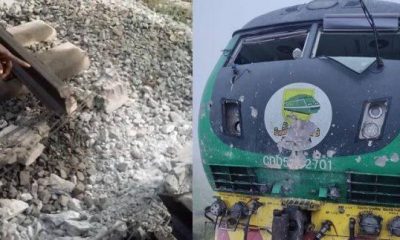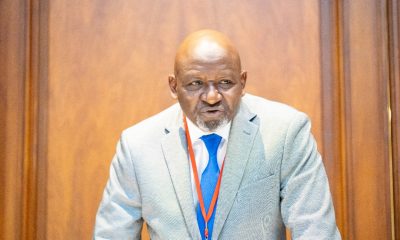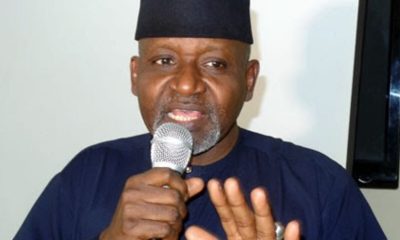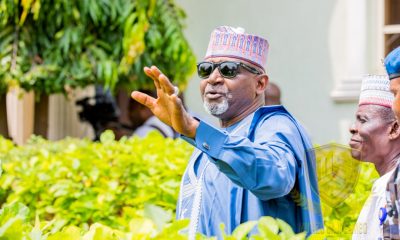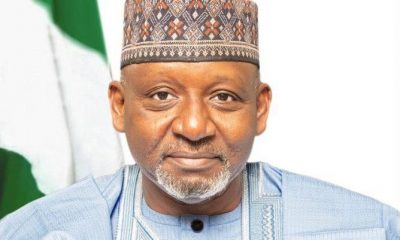Maritime Agencies
INLAND WATERWAYS OF DEATH: WHO IS TO BLAME?
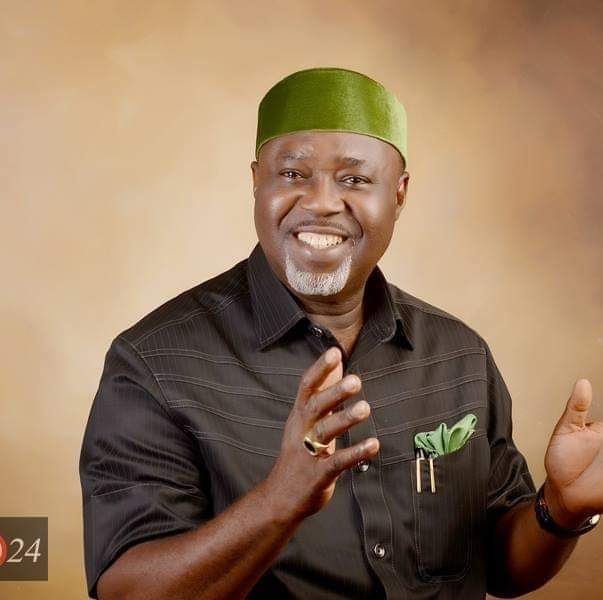
The matter is grim! Every patriot is deeply worried. Whether in Lagos, Yauri, Sokoto, Shiroro, Kebbi or the Niger Delta waters, the increasing loss of lives on the nation’s inland waterways is frightening and can no longer be tolerated. Who actually stands to blame? Who is contributing what to perpetrate what ought to be an exception rather than the rule? Is the carnage persisting because waterway users stubbornly neglect safety measures the National Inland Waterways Authority (NIWA) has been championing for years? What is the level of government empowerment to NIWA to address this matter? Is government allocation sufficient to frontally address such a gargantuan problem? IZUCHUKWU OZOEMENA examines the issue following fresh appeals by the inland waterways regulator recently for all hands to be on deck to check what is becoming a national embarrassment.
August 12 – 14, 2014, the National Inand Waterways Auhority (NIWA) hosted her first-ever International Conference and Exhibition (ICE) in Lagos. Tagged NIWA ICE, it was part of continuing efforts to draw global attention to Nigeria’s huge waterway potentials and efforts the agency was making to harness them not only for the benefit of inland waterway users in-country but stakeholders from contiguous nations and even beyond.
From all indications, the theme of the conference, “Modernizing Inland Waterways Infrastructure and Vessels for Safe and Sustainable Inland Waterways Transportation”remains as relevant and apt, eight years after. This is because it falls in line with the imperatives of the moment and present concerns about increasing safety lapses on the waterways and loss of lives being experienced.
The NIWA ICE focused on safety while vigorously projecting the agency’s strategies to compel boat operators and passengers alike to give topmost priority to safe sail on the inland waterways.
FROM THE BEGINNING
Among other responsibilities, the NIWA Act CAP N47, 2004 of January 1, 1996 which established the agency, vested in it the task to “provide regulations for inland waterway navigation.” Unambiguously spelt out in this task is safety on the inland waterways. To what extent has the agency gone to satisfy public expectations in this regard? What role is stakeholders’ attitude of non-compliance to safety rules playing in making it impossible for NIWA to make substantial strides in ensuring safety on the inland waterways? Does NIWA really stand to blame for continuing loss of lives on the waterways when boat passengers, boat drivers and others blatantly flout safety regulations while plying the inland waters?
The present leadership of NIWA under Dr George Moghalu has been facing scathing criticism for what appears an inability to tame the scourge of numerous boat mishaps. This is despite all efforts by the agency to enforce extant safety regulatory measures. However, some stakeholders say that considering the very wide area whose inland waterways it is overseeing, the agency deserves to be adequately empowered to tackle all tasks including incidences of disobedience to safety rules and regulations. For now, the agency lacks what it takes to adequately prevent or preempt some of these deadly occurrences. It can only react to some of them depending on her capability level which reflects the level of empowerment at her disposal.
Shortly after appointment as NIWA Managing Director, Dr George Moghalu undertook a familiarization tour to coastal states and communities to re-assure all and sundry that contrary to negative notions about travelling by water, it remains the fastest, safest and economically-rewarding means of transportation.
At an enlarged media interaction in Lagos early August, Moghalu was at his best when he made efforts to assure stakeholders that much as it may be humanly impossible to achieve absolute perfection, the agency remains committed to ensure an enduring, secure and safer inland waterways. On recurring boat accidents, he commended the media for reporting this at least to increase awareness on the possibility so that operators can caution themselves on the need to comply to safety regulations at all times. However, he blamed a section of the media for not verifying facts before publishing news on the frequency and casualties. He condemned some boat operators and passengers who treat safety matters with levity.
CHALLENGES
Without doubt, the greatest challenge NIWA is yet to overcome is deviant acts that result to avoidable marine accidents. Majority of accidents occur at night. The agency has to devise a far-reaching monitoring and enforcement strategy, night or day, to remain ahead of boat operators who ply the waterways at unholy hours. Strict enforcement of safety precautions, though already in place, is yet to meet expected standards. This is the reason boat accidents still persist even to a frightening proportion being experienced presently.
Jide Okunola, an Apapa-based freight forwarder stated this recently. Okunola who resides in Igbede riverine area of Ojo, told Falcon Watch that most boat drivers who operate along the Badagry-Ojo-Liverpool-Apapa corridor always have a field day because Police patrols take place during the day only. Therefore, he suggested that NIWA must redesign her strategy by engaging local ‘agboros’ and those he described as ‘repented hoodlums’ because “it takes a thief to catch a thief”. According to him, they are already familiar with the terrain and can be very useful in monitoring who is doing what on the waterways especially at night.
These people can be offered incentives to volunteer information because they are on ground more than the Police. Night journeys are common. Nobody checks what happens along the waterways at night”, Okunola regreted. He said that along the stretch, intensive fishing happens in the night; movement of smugglers also take place at night and nobody is available to question those involved. People involved in this act care less about light, wrecks and other obstructions that can cause mishap. Of course, they understand the local geography and can avoid obstacles even in the dark.”
He advised NIWA to realize the need to obtain valid information about what goes on along this stretch through devising a subtle means to identify and befriend some of these night operators so as to have access to needed intelligence on unauthorized night voyages. If this strategy works out on this corridor, he explained, it can be replicated in other areas.
Okunola regretted that all talks about life jackets means nothing to the locals. “In fact, as they rush out to fish at night or scoop sand during the day, life jackets do not matter. For smugglers, the motive is to make it quick. Nothing else is relevant.”
Falcon Watch recalls that at an enlarged stakeholders’ meeting in 2020, Dr Moghalu stated that his cardinal objective was to make water transportation a transport mode of choice. He reiterated this in Lagos recently. “We have tried to provide the needed environment for operators, including training programmes, to expose them to operational standards. Yet, some have chosen the path of desperation and dangerous behavior leading to loss of lives and property.”
MENACE OF WATER HYACINTH
The menace which water hyacinth, the stubborn weed constitutes on the waterways is enormous. This directly impedes navigation for all kinds of vessels. In areas where she has supervisory statutory responsibility, NIWA clears this stubborn weed, Moghalu says.
Following the seasonal embarrassment this weed causes to navigation, NIWA and Lagos State Waterways Authority, LASWA, in 2017, concluded plans to promptly clear it at all times.
At a 2017 joint stakeholders’ meeting with members of the Association of Tourists, Boats and Water Transportation of Nigeria (ATBOWATON) in Lagos, then NIWA Lagos Area Manager, Engr Muazu Sambo admitted that water hyacinth was a critical problem hindering the Agency’s operations. Muazu Sambo who is the current Transportation Minister disclosed that NIWA had acquired equipments to clear it on a permanent basis. “We have acquired equipments to clear water hyacinth; we will deploy them for the purpose,” Sambo said.
INTERVIEW WITH DR GEORGE MOGHALU (in-box)
Q: Frequent boat accidents have become NIWA’s greatest challenge. Does it mean your safety arrangements are not working?
A: We’re doing all what we are expected to do to manage the waterways. But it is sad enough that you find that either by acts of commission or omission, people do not do what they are expected to do. For example, we have placed protocols that vessels don’t move in the night; they don’t move in the early hours of the day. From statistics and reports we receive on accidents that happen, 90% of such accidents happen in the night or early in the morning. What that goes to show is that these vessels don’t have navigational aids. Therefore, they should not move in the night or when it is dark. But people still move in the night. They will avoid the right jetties. At times, they don’t even move from jetties at all; they don’t move at river banks. They move from their vessels, get into the water and expose people to danger. You can’t just leave any of our jetties on your own without being tracked. These jetties are monitored and there are rules that must be obeyed. You cant just get onboard any of our jetties without being fully kitted among which is wearing the right life jacket. Most people don’t even know that these jackets expire. You can’t have an expired life jacket from any of our jetties. You can’t ply from any of our jetties when you are not properly kitted. But to avoid all these, they take people and put them on vessels and expose them to unnecessary and avoidable danger when they are not properly kitted.
Q: People say this is happening because NIWA has not been stringent in punishing offenders by catching and prosecuting them…….
We’re getting them….. We arrested people and tried them. Some people have been convicted. We are still doing that. Even we impound substandard vessels that shouldn’t be on the waterways. We get such vessels; some are destroyed. We keep doing that because every lfe is important to us. We don’t want the waste to continue.
Q: NIWA’s ex-top Manager, Engr Muazu Sambo, is now the Transportation Minister. Do you expect an improved treatment of NIWA matters especially strict enforcement of safety regulations which he championed in the past?
We are always serious and concerned about enforcement of safety standards. We are doing verything to push and actualize them. But don’t forget that much as he was our former staff, he is now the Federal Minister of Transportation and other paratatals are under him. It is not only NIWA that he is overseeing.
Q: The Onitsha River Port was recently concessioned. What is the position of this very large parcel of land and vegetation in the channel directly overlooking the port?
It’s an island; it’s not a bush. We have one or two Chinesecompanies discussing with us on the possibility of developing it.
Q: Still on safety and standards and the need to curb recurring boat mishaps. Any plans on waterway transport codes and standards?
We are putting up transport codes and standards; setting up a task force. Any defaulter we catch we hand over to the Police to prosecute. We are not leaving anything to chance because this is embarrassing. Every life is important to us. The rules area made to be obeyed.
Q: What is the place of technology in all these?
Like you heard me say, boat registration is now done online. We are trying to use technology as much as we can. The next stage is to station cameras to be able to monitor activities on our waterways. So, technology has a key role in all we do.
Q: You brought out some patrol vehicles as well as instituting a task force. What are you doin g to ensure that rules are not only adhered to but operators are abreast of the law?
We are engaging operators. We have created fora where we meet and discuss. A lot of sensitization is going on across the country. Like you said, we bought and distributed patrol vessels .We are empowering and giving all the support to our Police department. We are also setting up task forces that are working across the country to effect protocol when it has to do with boat management.
Q: It appears managing the long stretch of inland waterways across Nigeria is a daunting task for NIWA. Do you support views that it is time the agency is unbundled into three or four zones for easy surveillance and monitoring?
Why unbundle it? We already have too many agencies. We have departments in NIWA that are living up to their responsibilities and expectations in this regard. So, I don’t see why NIWA should be unbundled. I don’t think it is necessary.
Maritime Agencies
Dangote Lauds NPA’s One-Stop Shop Committee, Donates Coaster Bus To Ease Operations
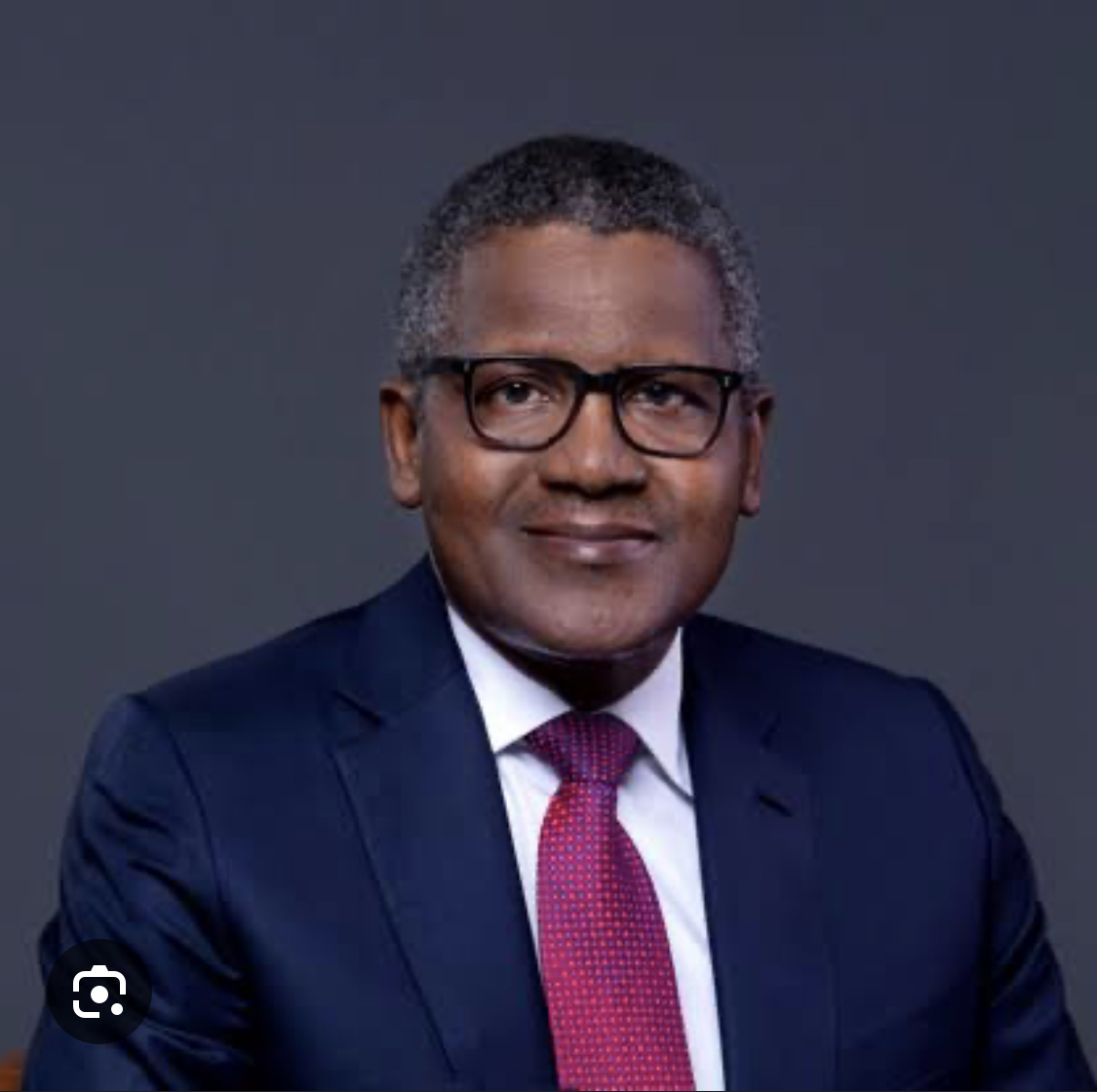
By Izuchukwu Ozoemena
The Nigerian Ports Authority (NPA) has received commendation for demonstrating tact and economic sense in the way and manner it implemented the Federal Government’s policy on domestic sale of crude oil and refined petroleum products in Naira.
The President/ Chief Executive Officer of Dangote Group, Alhaji Aliko Dangote made the commendation while donating a brand-new Coaster bus to the One-Stop Shop (OSS) Committee to further ease her operations.
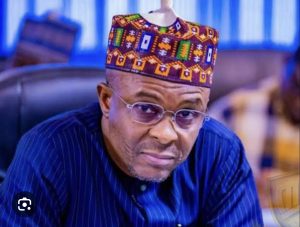
In a letter he personally signed, Alhaji Aliko Dangote assured that his organisation would continue to explore ways to support the NPA-led committee to sustain its successes in the implementation of the presidential directive on the sale of crude and refined products.
“In recognition of the enormous responsibility placed on the shoulders of the One Stop Shop (OSS) by the President and Commander in Chief of the Armed Forces, and our commitment to ensuring the committee delivers on its mandate”, the letter stated, “I am pleased to donate to the committee one (1) brand new Coaster bus to facilitate the daily discharge of their operations.”
“We believe this bus will be used productively by the committee as we continue to look for ways to support and appreciate the efforts of this noble committee.
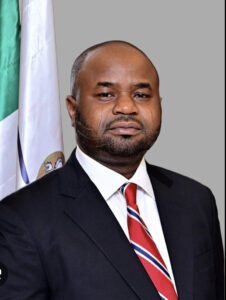
Mr Zach Adediji, Executive Chairman, Federal Inland Revenue Services
It is recalled that during a recent visit to NPA, the Chairman, Technical Sub-Committee on the implementation of the Federal Government’s policy on domestic sale of crude oil and refined products in Naira, Zach Adedeji,
commended the One-Stop-Shop (OSS) Team, led by the Nigerian Ports Authority (NPA) for ensuring smooth operations of the directive. Adedeji is the Executive Chairman, Federal Inland Revenue Service (FIRS).
He lauded the team led by NPA for playing a pivotal role in the successful implementation of the presidential directive on the domestic sale of crude oil and refined products in Naira.
Adedeji said: “We recognize that this pioneering effort is a significant achievement, and no doubt reflects your commitment and patriotism”.
“Thus, we encourage you to maintain the hard work and dedication that has made this initiative a success.
“We also extend our gratitude to all participating agencies for their invaluable cooperation and support,” Adedeji stated.
Maritime Agencies
Release Approved N200bn Capital Projects Fund To MAN, Oron, House of Representatives Charges NIMASA .
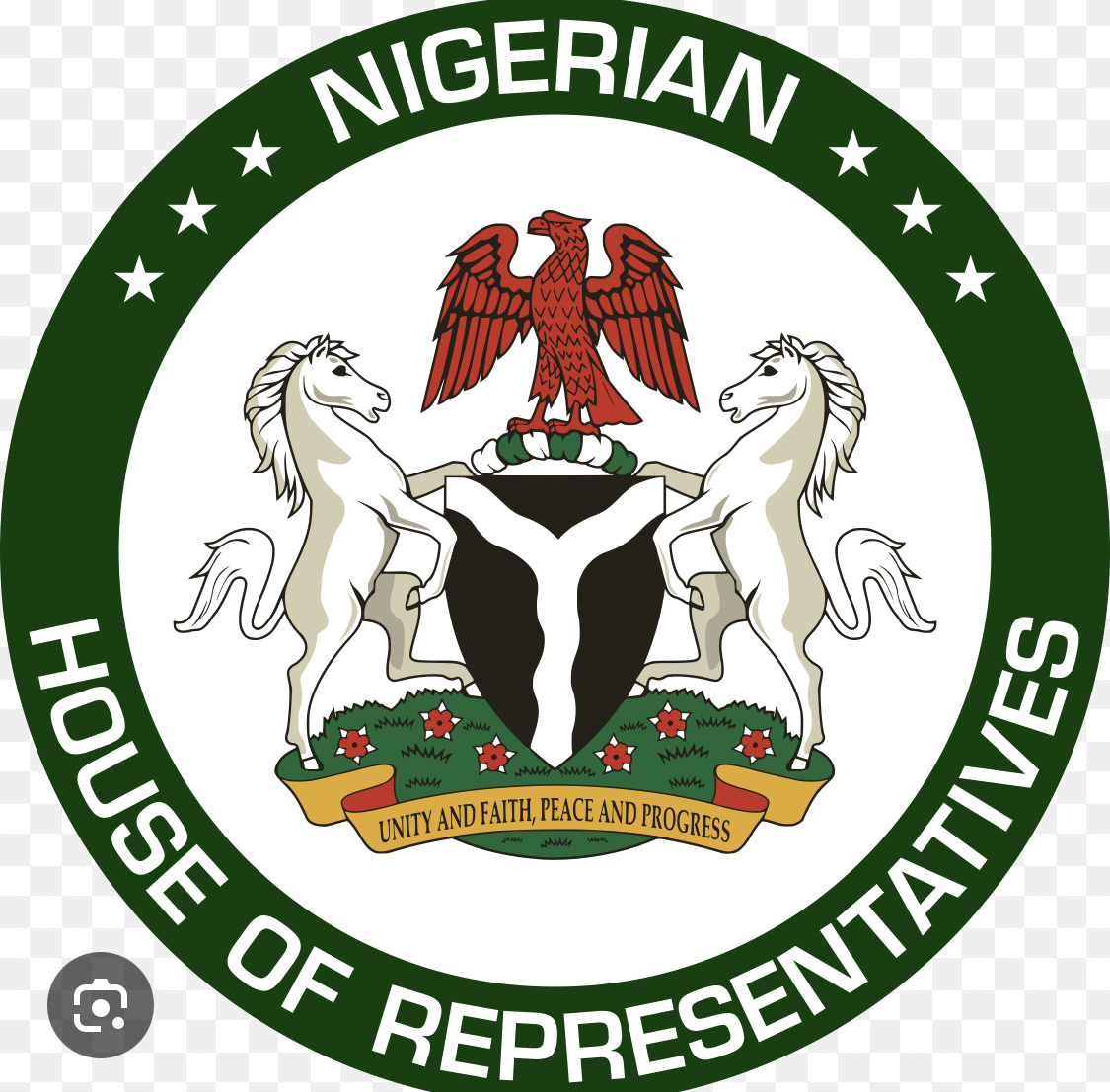
By Izuchukwu Ozoemena
In her determination that the Maritime Academy of Nigeria (MAN), Oron is adequately empowered to function to achieve her statutory mandate, the House of Representatives has directed the Nigerian Maritime Administration and Safety Agency (NIMASA) to release the N200 billion approved for key projects at the apex maritime training institution.
Hon Khadija Abba- Ibrahim, Chairman, House of Representatives Committee on Maritime Safety, Education and Administration made the appeal when the management of NIMASA appeared before the Committee for the 2025 budget defence. To drive home her point, the Committee reminded NIMASA that it was aware that the approved project fund is contained in the agency’s 2025 revenue target of N774.66 billion.
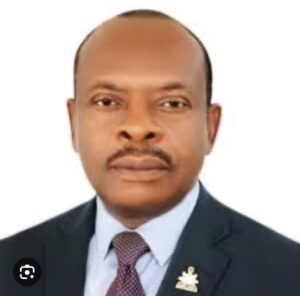
Dr Kevin Okonna, Rector, Maritime Academy of Nigeria, Oron.
In his presentation, Chudi Offodile, the agency’s Executive Director, Finance and Administration who stood in for the Director-General, Dr Dayo Mobereola explained that when federal remittances funding, maritime fund contributions and other deductions are made, N264.96 billion would be available for operations.
He listed freight levies, offshore waste management, sea protection and ship registration as primary revenue sources, alongside new gains expected from automation, the rollout of a modular floating dock, amongst other economic and financial prospects.
Speaking on the budget performance for 2024, the executive director disclosed that actual collections for last year amounted to N370 billion as against the projected N467.4 billion which stands at 79% performance rate.
“Recurrent expenditures reached 87% of budgeted allocations, while capital spending stood at 51% implementation,” he said.
While drawing NIMASA’s attention to what the committee described as significant fiscal shift in the remittance of 50% of its IGR to the federal treasury, Hon Abba -Ibrahim described the development as “a significant departure from the previous policy that allowed the agency to retain all IGR”.
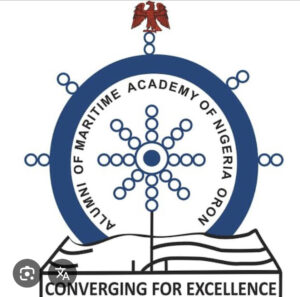
The committee expressed concern on the need to double the revenue target in view of the N97 billion shortfall recorded in 2024. It also expressed worries on the observed rise in personnel costs, from N42 billion in 2024 to N73 billion in 2025.
The committee wondered how NIMASA plans to implement ₦89 billion in capital projects when 50% of its revenue would be deducted at source.
In his response, the NIMASA Executive Director, Finance and Administration explained that budgets are mere projections which depend on economic variables. He attributed the ambitious 2025 targets to anticipated oil production increases, enhanced revenue automation, and what he referred to as operational scale-up.
“We are confident that with better systems and strategic partnerships, we can meet these targets,” he assured.
Maritime Agencies
NPA Berths Nigerian-Owned Container Vessel,”MV OCEAN DRAGON,” To Boost Incountry and Regional Trade,
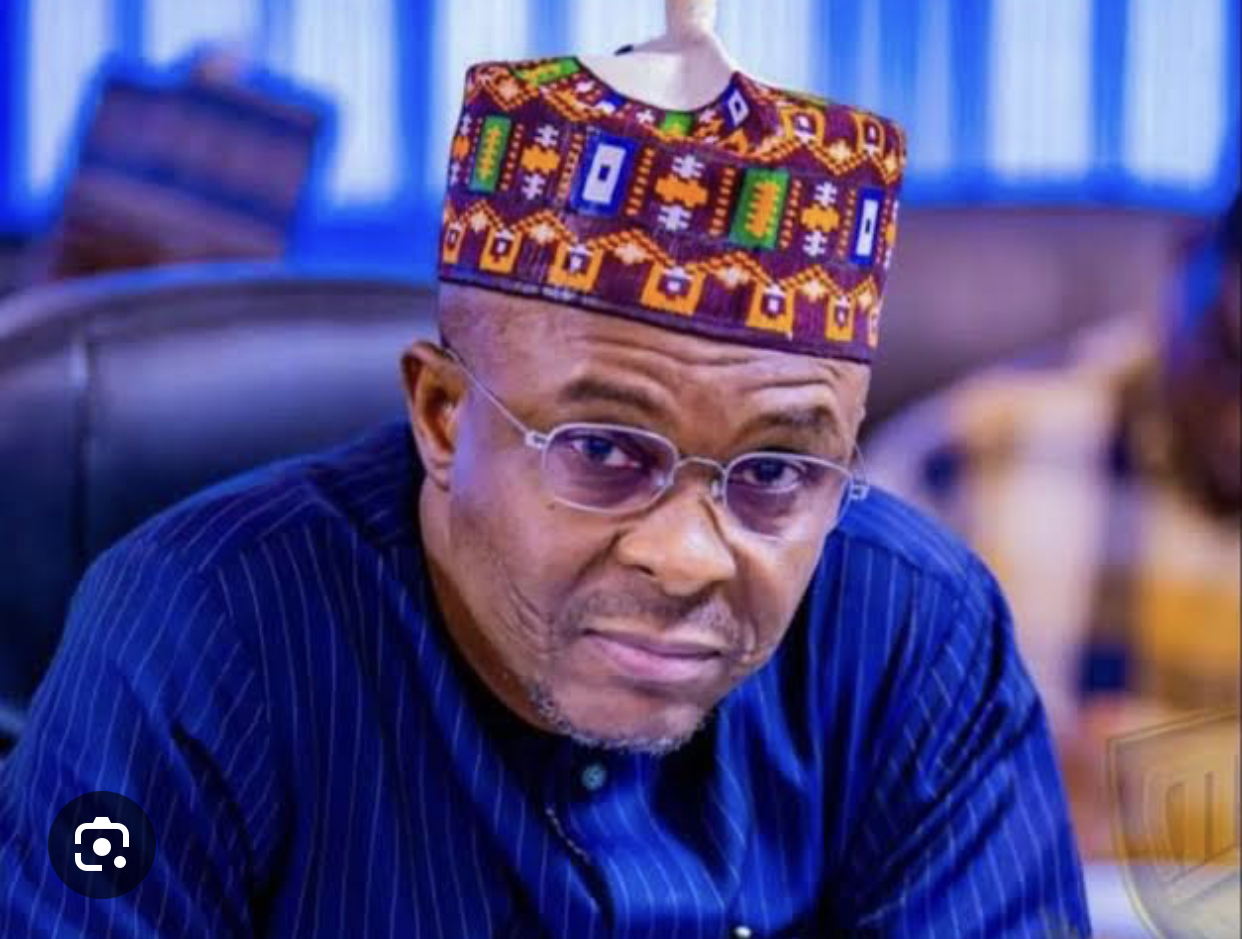
By Izuchukwu Ozoemena
The Nigerian Ports Authority (NPA), 2nd July, 2025, berthed “MV Ocean Dragon”, the first wholly Nigerian-owned container vessel.
The craft with International Maritime Organization (IMO) Number 9508770 which belongs to Clarion Shipping West Africa Limited has a capacity of 349 Twenty-Foot-Equivalent Units (TEUs) and demonstrates a concerted investment drive by the NPA aimed at reaping the gains of cost and time- saving benefits of short-sea shipping by plying in-country maritime trade routes across Nigeria and the West African sub-region. It offers an efficient alternative to road transport as the Authority’s efforts at deepening multi- modalism in transportation is being realized.

The vessel is scheduled to operate across West Africa and beyond, servicing ports in Nigeria, Benin Republic, Togo, Ghana, Cameroon, Sierra Leone, Ivory Coast, Egypt, South Africa and others, with expressions of interest for businesses already being established.
As stated by Dr Abubakar Dantsoho, Managing Director/ CEO of the NPA: “this development is a testament to our relentless commitment towards deepening efficiencies required for maximizing our marine and blue economy potentials in line with the prompting of the Honourable Minister of Marine & Blue Economy Adegboyega Oyetola whose tenacity of purpose culminated in the recent FEC approval of the national policy on Marine and Blue Economy”.
Speaking about the development too, the Vice President of Clarion Shipping West Africa Limited, Bernadine Eloka, described the acquisition of the vessel as a bold solution to the high-risk, road-dominated movement of cargoes within Nigeria. It signifies a strategic move to deepen regional trade under the African Continental Free Trade Area (AfCFTA).
The Clarion Group, she stated, aims to offer more efficient intra-African shipping services while opening up new business opportunities across ports in Nigeria, Ghana, Ivory Coast and beyond.
“We acquired MV Ocean Dragon to offer a seamless alternative to container haulage by road. Rather than struggling to move containers from Lekki to Onitsha, Port Harcourt, or Calabar by trucks, Ocean Dragon can move up to 349 containers by sea and deliver within two days from port to port,” Eloka said.
According to her, enforcement of the cabotage regime would encourage local investment, create jobs, and reduce Nigeria’s dependency on foreign-owned shipping lines.
Also speaking, Managing Director of Clarion Suncity Terminal Logistics Limited, Mustafa Mohammed, said the company would take aggressive steps to compete with global giants such as Maersk Line and MSC, by leveraging its status as Nigeria’s first indigenous shipping liner, investing in assets that directly support Nigerian exporters and importers, particularly in the landlocked regions.
He said the company had already secured bookings for 1,300 export containers and is helping farmers and manufacturers to avoid losses caused by delays and lack of containers.
This development is coming on the heels of the announcement by the NPA MD of injection of 60 million USD in fresh investments towards the establishment of eco-friendly ports developments catalyzed by the Authority’s renewed orientation towards Nigerian content development.
-
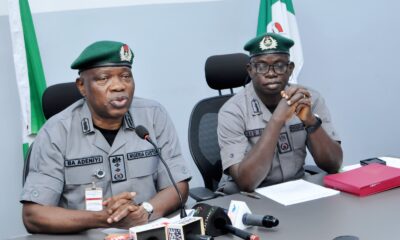
 Maritime Agencies3 weeks ago
Maritime Agencies3 weeks agoCG Adeniyi Commends Ogun II Command for Massive Revenue Increase.
-
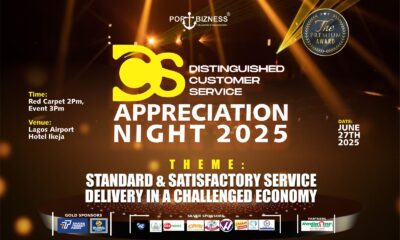
 Maritime Agencies2 weeks ago
Maritime Agencies2 weeks agoPORTBIZNESS Celebrates Excellence in Customer Service Delivery, Holds Special Awards Night
-

 Maritime Agencies2 weeks ago
Maritime Agencies2 weeks agoKebbi Customs Command Introduces Health Screening, Mandatory Sports To Ensure Work-life Balance
-

 Maritime Agencies3 days ago
Maritime Agencies3 days agoNPA Berths Nigerian-Owned Container Vessel,”MV OCEAN DRAGON,” To Boost Incountry and Regional Trade,
-
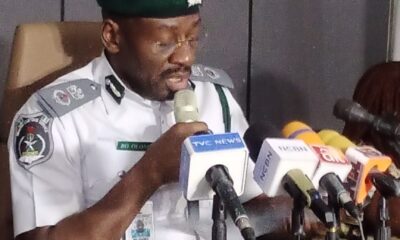
 Maritime Agencies4 days ago
Maritime Agencies4 days agoHALF-YEAR REVENUE DISPOSITION: Apapa Customs Hits N1.38Trillion, Confiscates Prohibited Goods Worth Billions.
-
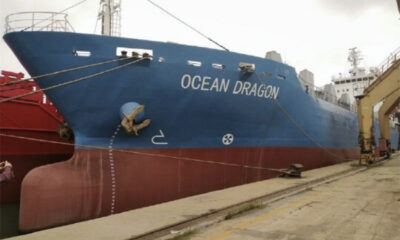
 Maritime Agencies4 days ago
Maritime Agencies4 days agoNIGERIAN PORTS AUTHORITY BERTHS FIRST WHOLLY NIGERIAN-OWNED CONTAINER VESSEL.
-
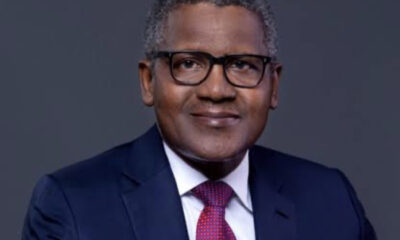
 Maritime Agencies4 hours ago
Maritime Agencies4 hours agoDangote Lauds NPA’s One-Stop Shop Committee, Donates Coaster Bus To Ease Operations
-
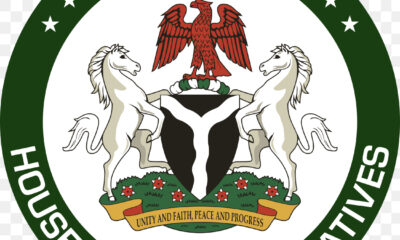
 Maritime Agencies5 hours ago
Maritime Agencies5 hours agoRelease Approved N200bn Capital Projects Fund To MAN, Oron, House of Representatives Charges NIMASA .


